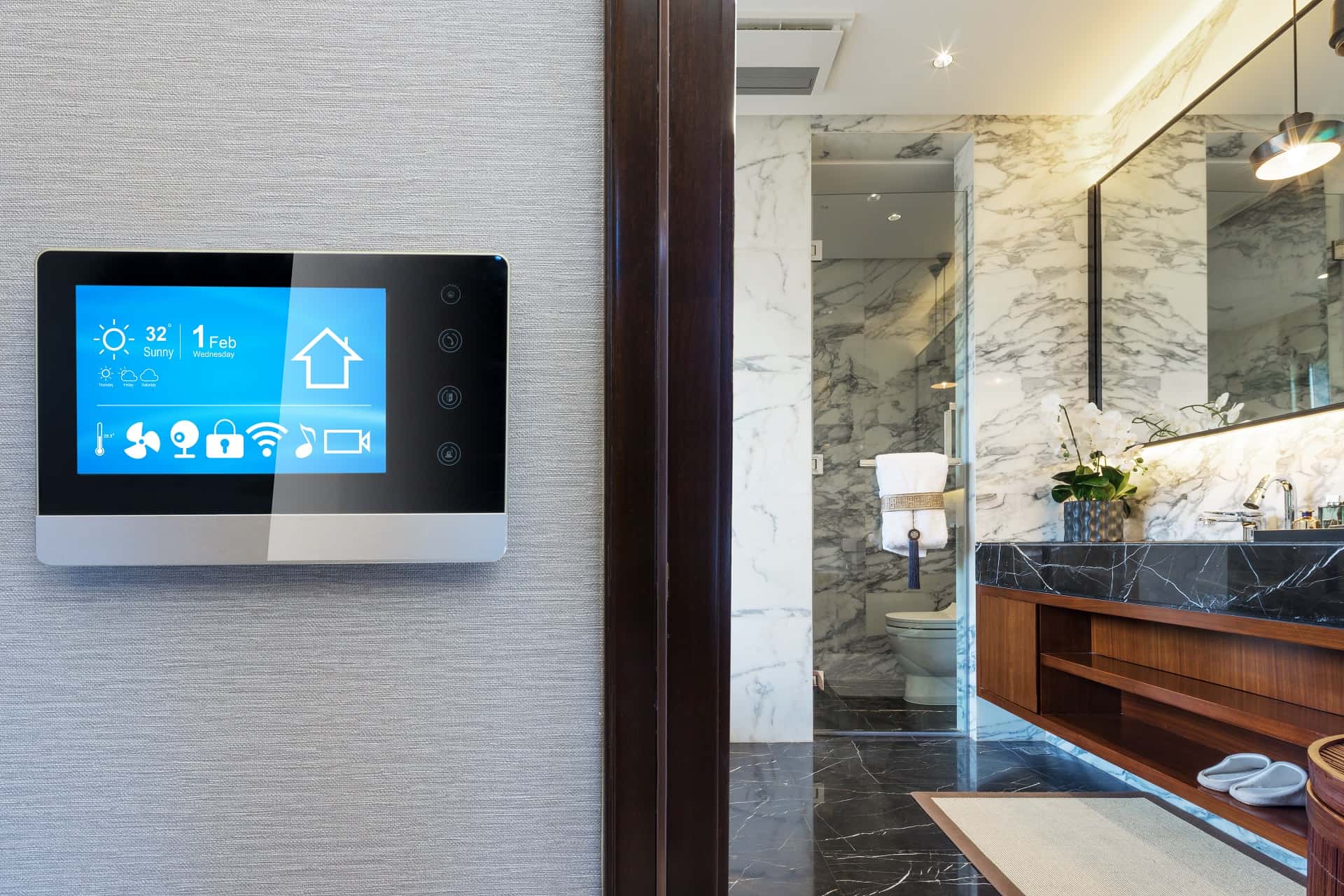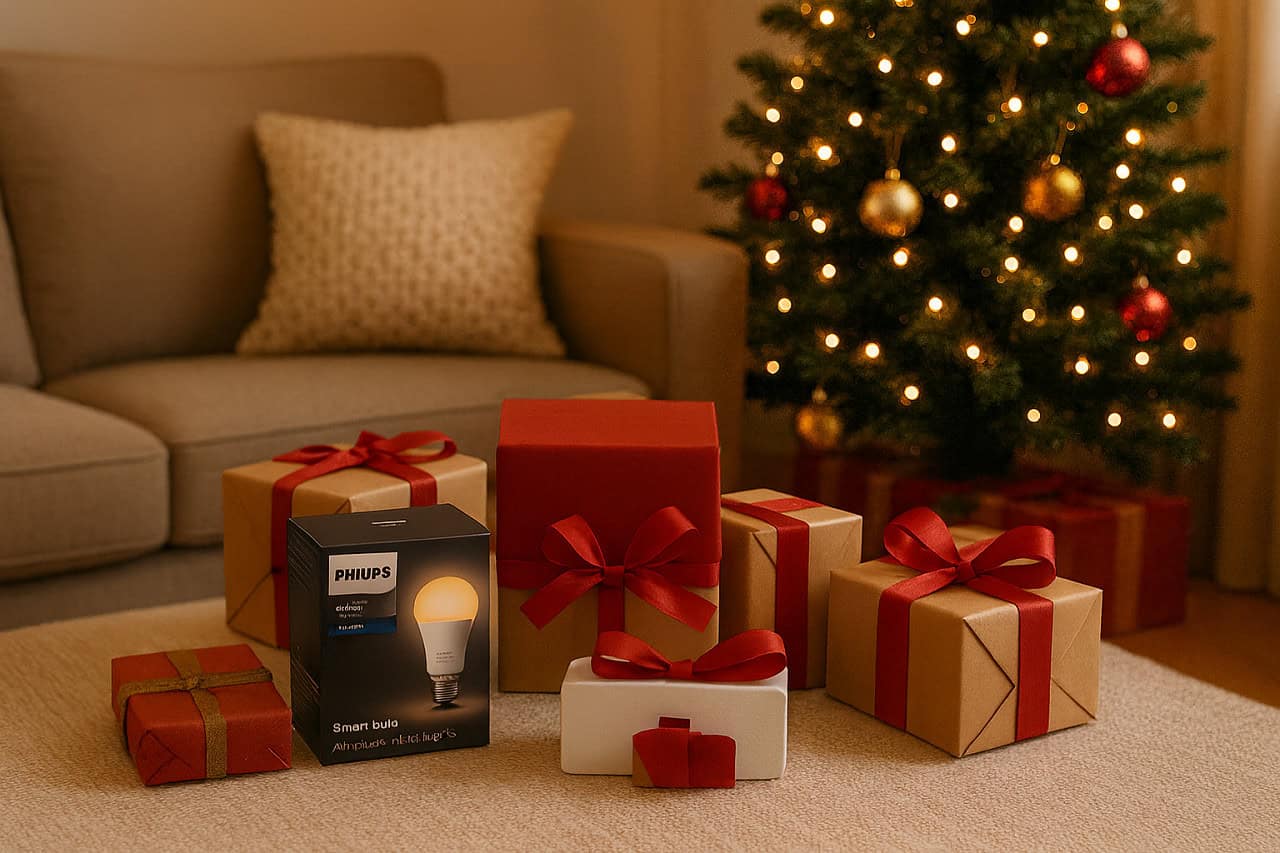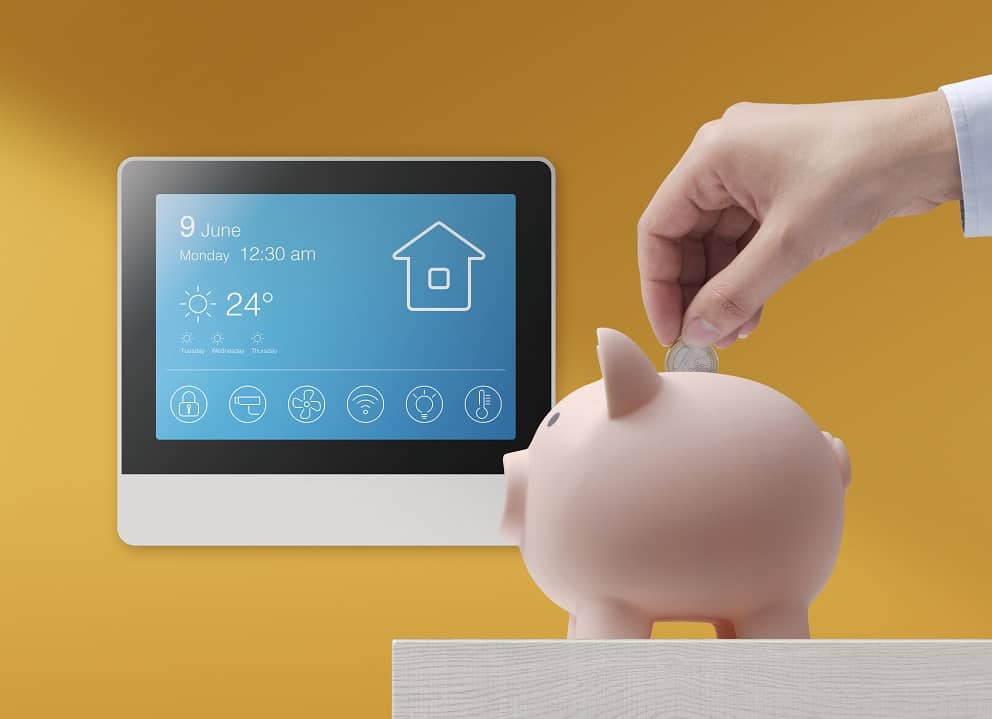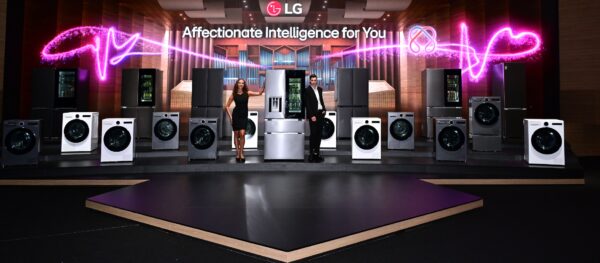Do you want a smart home, but don’t want your light bulb’s traffic travelling over the internet? In this post, we’ll explore how to create a smart home that can operate without an internet connection, and discuss the potential benefits and limitations of such a setup. So, whether you’re a tech enthusiast or simply curious about the ins and outs of smart home technology, join us as we delve into the exciting world of offline smart homes.
Can you have a Smart Home Work Without Internet?
Let’s start with the big question – can you even have a smart home that works without internet? Yes! You can have a smart home that works without internet. It does take some technical skill and knowledge to replicate all of the features found in Google Home, Apple Home, or Amazon Alexa. However for easier projects like having smart switches turn on smart bulbs, you can easily replicate this with a Zigbee devices or Z-wave devices and a hub. For example, Philips Hue bulbs can work with the Zigbee protocol. So if you set them up in your Zigbee hub to be controlled by a Zigbee switch, then even without internet that switch would be able to control your lights.
Why a Smart Home that can “go offline” is a good idea
A smart home is designed to provide convenience, security, and efficiency by connecting various devices and systems through the internet. However, if you have an internet outage, do you lose all of these features? Not being able to turn on your lights, lock your front door, or get important reminders can quickly become a problem.
Operating a smart home without internet connectivity presents several challenges. Without internet access, you lose the ability to control your devices remotely or receive notifications. Voice commands may not work, and you’ll have to manually operate your devices. Smart home features like energy efficiency monitoring, weather updates, and integration with other smart devices may also be limited or unavailable. It’s important to note that while some smart devices can function without internet connection, the overall functionality of your smart home will be significantly diminished without internet access.
Another huge benefit of having a “local only” smart home is that all of your network traffic stays on your network. No more images from your vacuum cleaner being sent to the manufacturer and leaked. No more suspicious ads in your browser about things you were talking to your family about. Your data stays on your network, with your devices.
So having a smart home that can work when it’s “offline” is really nice, since you won’t lose the ability to use your smart home devices and you know that your data is safe.
How to have a Smart Home Work Without Internet?
The good news is that there are options for offline smart home devices and local area network (LAN) setups that can keep your smart home running even without an internet connection.
Offline smart home devices are designed to work independently, without relying on the internet. These devices communicate directly with each other, using a wireless protocol like Zigbee or Z-Wave. This means that even if your internet goes down, your smart lights, thermostats, security cameras, and other devices can still communicate and function as usual. Offline devices often have their own dedicated hub or bridge that connects them to your local network, allowing for seamless communication between devices. For your smart home products to be able to do this, you would want to be sure that they could support communicating via the Zigbee or Z-wave protocols.
Setting up a local smart home controller like Home Assistant or a Hubitat hub is another option to ensure functionality without internet access. By setting up local smart home controller, you can replicate many of the features of more advanced controllers ( looking at you Google Home and Amazon Alexa ). This means you can have complex smart home automation, a controlling dashboard, and more. The local smart home hub also allows your smart home devices to communicate with each other via your wi-fi router and wi-fi connection – no internet connection needed. Having your own local smart hubs does take a bit more technical savvy as you may end up deploying the controller software and maintaining it, just like a computer server!
While having an internet connection can enhance the capabilities of your smart home system, it is not essential for basic functionality. With offline smart home devices or a local smart home hub, you can still enjoy the convenience and automation of a smart home even without internet access.
FAQ
Can a smart home work without internet?
Yes, a smart home can work without internet. However, it takes planning in advance in order to make sure that it will function without internet. You would need either a special hub like a Zigbee or Z-wave hub, or a smart home controller on your local network.
Is internet connection necessary for a smart home?
No, an internet connection is not necessary for a smart home. However, having an internet connection does making having a smart home much easier. Many internet of things ( IoT ) devices can connect using the Z-wave or Zigbee protocols. Without an internet connection, you would either need to use something like a Z-wave or Zigbee hub to control your devices, or you would need to manage and maintain a local smart home hub like Hubitat or Home Assistant.
What functions can a smart home perform without internet?
With the right setup, a smart home without internet can do almost all of the things the big box smart home hubs can do. Device control and automation? Yes with a Zigbee or Z-wave hub or something like Home Assistant or Hubitat. Being able to support multiple device types and providers? Yes with Hubitat or Home Assistant. Being able to use voice to control your device? Yes with Home Assistant and something like Rhasspy.
Can I still use voice commands to control my smart home without internet?
This is a big one. Yes, you can still use voice commands to control your smart home even without internet. However, being able to do this takes some more advanced technical skills such as deploying applications to computers, configuring command lists, and connecting computers so they can communicate together. The voice assistants that power the Amazon Echo, Google Assistant, and Siri do quite a lot of their processing of the data in the cloud. Local solutions are getting close ( I’ve been running one locally for about six months now ), but they take some serious technical skill to setup and configure. It’s definitely a challenge to setup a smart speaker of your own, but can be worthwhile.
Will my smart home devices continue to function if my internet goes down?
Yes, your smart home devices can still function even if your internet goes down. While most smart home devices rely on an internet connection to operate and communicate with each other, many of them also have a local control option. This means that even without internet access, you can still control your smart devices manually or through a local network. For example, with smart thermostats you can adjust the temperature using the device’s physical controls or through a mobile app connected to your home Wi-Fi network. Smart locks would still be able to be manually locked and unlocked. Smart appliances would still have the buttons and controls on them. However, it’s important to note that certain features, such as remote access or voice control, may be temporarily unavailable without an internet connection.
Can I still receive notifications from my smart home devices without internet?
No, you cannot receive notifications from your smart home devices without internet. Smart home devices rely on an internet connection to send and receive data, including notifications. Without internet access, these devices are unable to communicate with the cloud-based servers that facilitate the notification process. However, some smart home devices, such as security cameras and doorbell cameras, may still function locally and record footage even without an internet connection. But to receive real-time notifications on your smartphone or other mobile device, internet access is necessary.
Can a smart home work without power?
No. Smart homes are basically a bunch of electronic devices and some computers working together to perform tasks. During power outages or some other loss of electricity, these electronic devices would not be able to function. Even with a backup power supply for your smart home hub, your smart lights, switches, and door locks would not function.
In Summary
Thank you so much for taking the time to read this post about how to have a smart home work without internet. I hope you found the information helpful and insightful. While it may be technically possible to have a smart home function without internet connectivity, it’s clear that the advantages and convenience that the internet brings to the table are undeniable. From controlling your devices remotely to accessing a wide range of smart features and functionalities, the internet plays a crucial role in maximizing the potential of your smart home unless you have some pretty significant technical skills.




